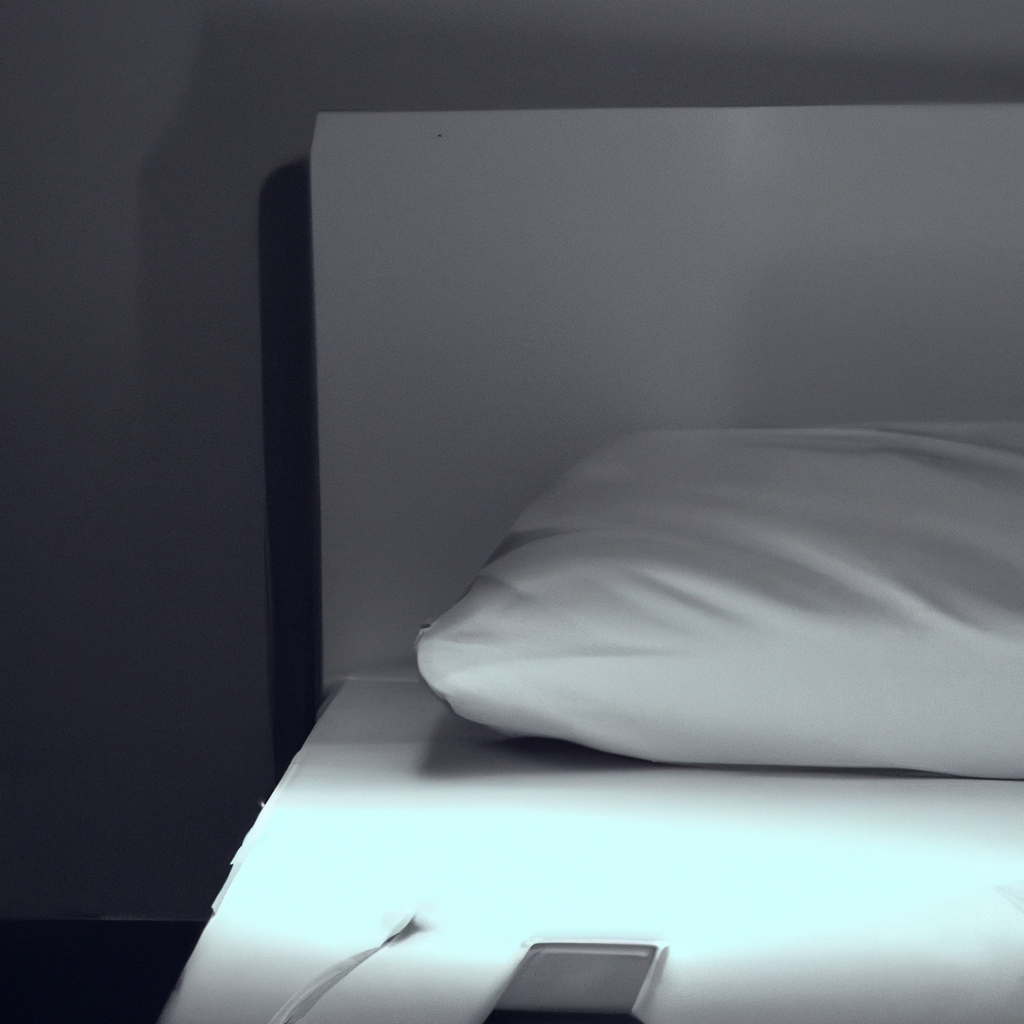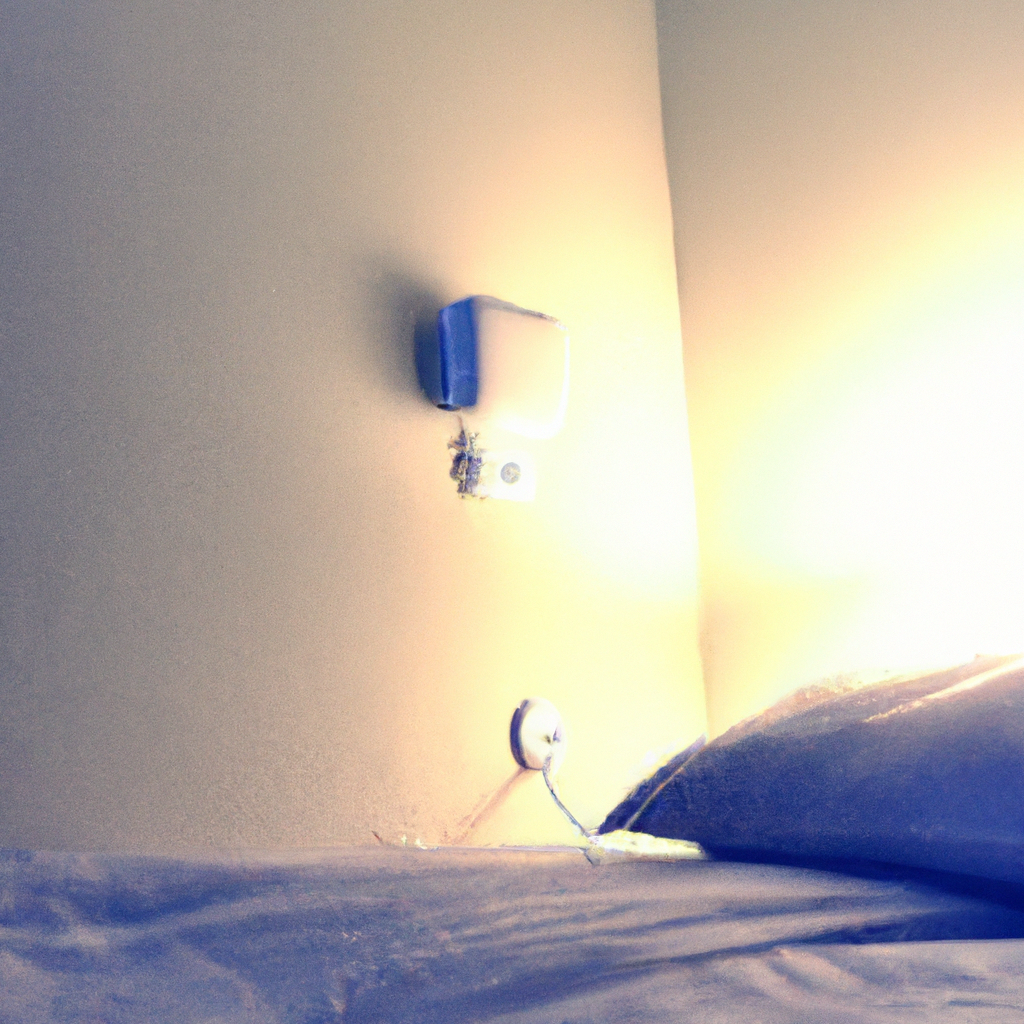In today’s digital age, smart cameras have become a common household appliance, with people utilizing them for various purposes. However, when it comes to incorporating smart cameras into the bedroom, privacy concerns immediately arise. This article will explore the potential risks and implications of using smart cameras in the bedroom and how individuals can protect their privacy in this intimate space. So, if you’re someone who is contemplating the inclusion of a smart camera in your bedroom, read on to find out what you need to know to ensure your privacy remains intact.
Invasion of Privacy

1.1 Violation of Personal Space
When it comes to utilizing smart cameras in the bedroom, one of the most significant privacy concerns is the potential violation of personal space. The bedroom is a place where individuals expect a high level of privacy and comfort, and the presence of cameras can disrupt this sense of security. Having a camera constantly monitoring your activities in such an intimate space can make one feel exposed and vulnerable. It is important to consider the boundaries of personal space and ensure that the use of smart cameras respects the privacy needs of individuals.
1.2 Recording Intimate Moments
Another invasion of privacy that arises from the use of smart cameras in the bedroom is the risk of recording intimate moments without consent. The bedroom is a space where people engage in personal activities that should remain private. However, with smart cameras present, there is always a possibility of capturing these moments without the knowledge or consent of the individuals involved. This can lead to profound personal and emotional distress, as well as potential damage to relationships. It is essential to carefully consider the potential implications and seek consent from all parties involved before implementing smart cameras in the bedroom.
Unauthorized Access

2.1 Hacking and Data Breaches
With the increasing connectivity of smart devices, the risk of hacking and data breaches becomes a significant concern when using smart cameras in the bedroom. These cameras are connected to the internet, making them potential targets for malicious individuals seeking to gain unauthorized access to private recordings and live streams. A successful breach could result in the exposure of personal information, intimate moments, and sensitive conversations. Ensuring strong security measures, such as encryption and regular software updates, is crucial to protect against potential hacking and data breaches.
2.2 Remote Viewing by Intruders
The ability to remotely access and view smart cameras in the bedroom can introduce the possibility of intrusion by unwanted individuals. Whether it be through a compromised account or an insecure network, unauthorized access to the live feed or recordings can have devastating consequences. Intruders may use this access to invade your privacy, gather personal information, or even engage in criminal activities. It is essential to implement robust security measures, including strong passwords and secure network configurations, to prevent remote viewing by intruders and protect your privacy within the bedroom.
Lack of Consent

3.1 Consent from All Individuals
One of the fundamental principles of privacy is consent. When considering the use of smart cameras in the bedroom, obtaining consent from all individuals involved is of utmost importance. This is especially crucial if the camera is intended for shared spaces or captures activities that involve multiple parties. It is essential to have open and honest conversations about the use of smart cameras, addressing concerns and ensuring that everyone feels comfortable and consents to their presence. Respecting the autonomy and privacy preferences of each individual is essential for maintaining healthy relationships and fostering trust.
3.2 Knowledge and Awareness
In addition to consent, knowledge and awareness are vital aspects of maintaining privacy in the bedroom. It is possible that individuals may not even be aware that a smart camera is present or how it operates. Transparent communication and education about the purpose, functionality, and limitations of the camera can ensure that individuals understand what information is being captured, how it is stored, and who has access to it. This knowledge empowers individuals to make informed decisions about their privacy and engage in discussions regarding the use of smart cameras in the bedroom.
Relationship Strain

4.1 Loss of Trust
Utilizing smart cameras in the bedroom can potentially strain relationships due to the potential loss of trust. The presence of a camera monitoring personal activities may cause one or both partners to question the intentions and motives behind its use. Concerns about privacy breaches or unauthorized access can lead to feelings of insecurity and suspicion within the relationship. To mitigate this strain, open and honest communication about the reasons for implementing the camera, addressing concerns, and reaffirming trust is crucial. Building a strong foundation of trust and understanding can help navigate potential issues and maintain a healthy relationship.
4.2 Emotional Discomfort
The emotional discomfort caused by the use of smart cameras in the bedroom cannot be underestimated. Many individuals value the bedroom as a sanctuary—a space for relaxation, intimacy, and personal reflection. Introducing a camera disrupts this sense of comfort and privacy, leading to feelings of unease and emotional distress. It is essential to prioritize emotional well-being when considering the use of smart cameras in such intimate spaces. Regularly checking in with yourself and your partner, acknowledging any emotional discomfort, and being open to adjusting or reevaluating camera usage can help mitigate its impact on personal well-being.
Unintended Surveillance

5.1 Capturing Activities Unrelated to Security
One privacy concern associated with smart cameras in the bedroom is the potential for capturing activities unrelated to security. While the primary intention may be to ensure safety and monitor for any suspicious activity, these cameras may inadvertently capture personal moments that were not meant to be recorded. From mundane activities to intimate interactions, the constant recording can gather a vast amount of unnecessary and personal information. Careful consideration should be given to camera placement and settings to minimize the risk of unintended surveillance and protect the privacy of individuals within the bedroom.
5.2 Invasion of Guests’ Privacy
The presence of smart cameras in the bedroom raises concerns about the invasion of guests’ privacy. Whether it be close friends, family members, or other temporary visitors, individuals have a reasonable expectation of privacy when they enter someone’s bedroom. The use of smart cameras without their knowledge and consent can violate this expectation and make visitors feel uncomfortable or unwelcome. It is crucial to inform and seek consent from any guests who may potentially be captured by the camera, allowing them to make an informed decision about their privacy and whether or not they are comfortable being monitored.
Storing and Sharing Data
6.1 Storage Duration and Security
Smart cameras in the bedroom often record and store large amounts of data, including video recordings and live footage. Concerns arise regarding the duration for which this data is stored and the security measures in place to protect it. Longer storage periods increase the risk of data breaches and unauthorized access, potentially leading to the exposure of personal and sensitive information. Implementing policies that ensure data is securely stored and regularly purged when no longer necessary can help minimize the privacy risks associated with long-term storage of recorded footage.
6.2 Data Sharing Policies and Practices
The question of who has access to the recorded data and how it is shared is a critical privacy consideration when using smart cameras in the bedroom. It is essential to have clear and transparent data sharing policies in place to protect the privacy of individuals captured by the camera. Information about who can access the data, the purposes for which it may be shared, and the measures taken to ensure data security should be communicated effectively. Having control over how and with whom the recorded data is shared empowers individuals to maintain their privacy and avoid potential misuse of their personal information.
False Positives and Alarm Fatigue
7.1 Privacy Concerns with AI-Powered Alerts
Many smart cameras come equipped with artificial intelligence (AI) capabilities that can detect and alert users to potential security concerns. While these alerts are designed to enhance safety, there are privacy concerns associated with the accuracy and specificity of these AI-powered notifications. False positives—incorrectly identifying benign activities as potentially threatening—can result in unnecessary intrusions into personal privacy. It is important to consider the potential implications of relying solely on AI alerts and to implement additional layers of human discretion to ensure privacy is respected.
7.2 Frequent or Inaccurate Notifications
The frequent or inaccurate notifications generated by smart cameras can lead to alarm fatigue and further privacy concerns. Constant alerts disrupt the peace and tranquility of the bedroom, creating a sense of anxiety and invasion. Whether it be due to technical glitches, sensitivity settings, or the detection of harmless activities, the continuous stream of notifications can erode trust in the camera’s capabilities and increase frustration. Striking the right balance of sensitivity and accuracy is crucial to reduce unnecessary notifications and maintain the privacy and comfort of individuals within the bedroom.
Integration with Other Devices
8.1 Interconnectedness and Additional Data Collection
The integration of smart cameras with other devices within the bedroom introduces concerns about additional data collection and access. Connected devices, such as smart speakers or home assistants, may have access to the camera’s feed or the data it generates, potentially increasing the risk of privacy breaches. Careful consideration should be given to the interconnectedness of devices and the extent of data sharing that occurs within the connected ecosystem. Ensuring that data access is limited to necessary devices and implementing strong security measures can help mitigate the privacy risks associated with integrating smart cameras with other devices.
8.2 Potential for Device Exploitation
The interconnectedness of devices also opens up the possibility of device exploitation by malicious actors. A vulnerability in one connected device, such as a smart camera, can potentially provide a gateway for unauthorized individuals to gain access to other devices within the bedroom. This can enable the exploitation of personal information, live feeds, or control of connected devices, leading to significant privacy and security breaches. Regularly updating firmware, implementing strong passwords, and selecting devices from reputable manufacturers can help minimize the risk of device exploitation and protect the privacy of individuals.
Legal Implications
9.1 Privacy Laws and Regulations
The use of smart cameras in the bedroom must be considered within the context of privacy laws and regulations. Different jurisdictions may have specific rules and guidelines governing the usage and implementation of surveillance cameras in private spaces. It is crucial to familiarize yourself with the applicable laws in your region and ensure compliance to protect the privacy rights of individuals. Failure to adhere to these laws can result in legal implications and potential penalties, further emphasizing the importance of understanding and respecting privacy regulations when using smart cameras in the bedroom.
9.2 Surveillance and Eavesdropping Laws
In addition to general privacy laws, surveillance and eavesdropping laws may be applicable to the use of smart cameras in the bedroom. These laws govern the interception and recording of audio and video conversations without consent. Understanding the legal requirements surrounding surveillance and eavesdropping is essential to ensure compliance and safeguard against potential legal consequences. Seeking legal advice or consulting relevant authorities can provide clarity on the specific laws and regulations that apply to the use of smart cameras in private spaces.
Ethical Considerations
10.1 Respecting Individual Privacy
Respecting individual privacy is a key ethical consideration when utilizing smart cameras in the bedroom. Recognizing and honoring each person’s autonomy, personal boundaries, and right to privacy should guide decision-making around the use of these devices. Ethical considerations involve obtaining informed consent, communicating openly about the purpose and limitations of the cameras, and taking active steps to protect sensitive information and avoid unnecessary intrusion into personal lives. By adhering to ethical principles, individuals can balance their security needs with the respect for privacy that is essential for healthy relationships and individual well-being.
10.2 Balancing Security and Privacy
Finding a balance between security and privacy is a critical ethical consideration when using smart cameras in the bedroom. While these cameras can help enhance safety and provide peace of mind, it is essential to ensure that the methods used to achieve security do not compromise the privacy of individuals. Privacy should not be sacrificed in the pursuit of security. Striving for a holistic approach that prioritizes both security and privacy is crucial to maintain a healthy and respectful environment within the bedroom. By carefully considering the potential privacy implications and implementing appropriate measures, individuals can strike a balance that meets their security needs while respecting their privacy.
